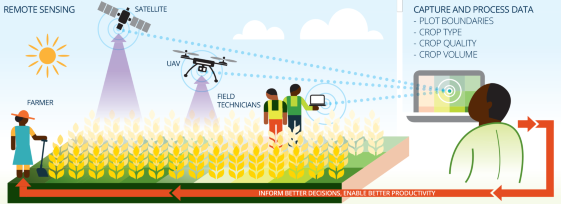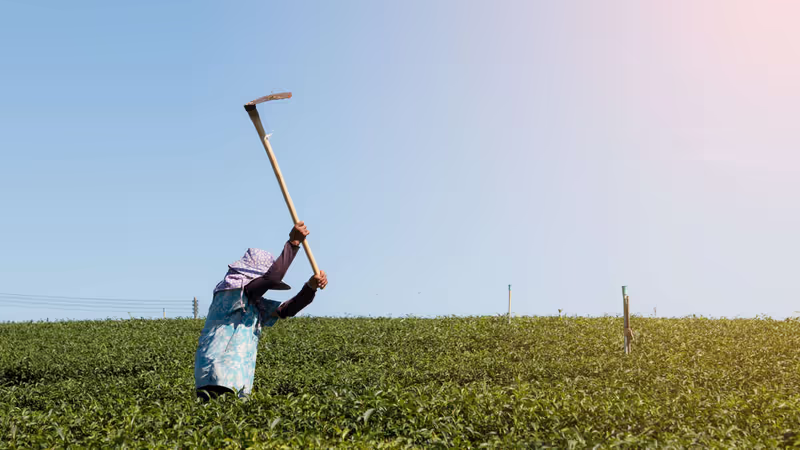| Timeline | From June 2014 to 31 August 2017 |
|---|---|
| Theme | Resource security |
| Countries | Bangladesh, Mali, Tanzania |
| Funded by | Bill & Melinda Gates Foundation |
| More info | https://www.stars-project.org |
STARS is a research project which is looking for ways to use remote sensing technology to improve agricultural practices in Sub-Saharan Africa and South Asia. Supported by the Bill & Melinda Gates Foundation, the project hopes to significantly advance the livelihoods of smallholder farmers in some of the world’s poorest countries.
Background - the Challenge
High-income countries have seen recent improvements in their agricultural management systems through modern remote sensing technology, such as satellites, aircraft and the information they collect. Out of the vast amount of data collected, advice can be provided to farmers on the ground to help inform their decisions about farming methods. This leads to better crop yields, higher quality produce and possibly more sustainable practices for the farming communities. This data can also inform higher-level decisions to manage national food supply needs more effectively.
Out of the vast amount of data collected by remote sensing technology, advice can be provided to farmers on the ground to help inform their decisions about farming methods.
The significant spatial and technical challenges present in Sub-Saharan Africa and Southern Asia, have prevented the use of remote sensing technology in many areas. For example, smallholder farmers, who produce two thirds of the world’s food, often have small plots with undefined boundaries, they often grow multiple crops on the same plot and there is significant variety in the farm practices they use. These conditions make it difficult to distinguish farming practices from the skies and therefore, to capture and collate accurate and potentially actionable information, brought to farmer groups, agribusiness and public agencies.
Challenges such as unproductive soil, plant diseases, pests and drought, mean that many farmers struggle to produce crops consistently and sustainably year-by-year. At a national level, these challenges can also present difficulties in understanding the condition of crops and pastures, seasonal outlooks, access to markets and likely production levels. Decisions such as whether additional food needs to be imported to supplement that season’s harvest, have been misjudged in the past due to a lack of information. There have been examples where produce was imported erroneously before what turned out to be a bumper crop, leading to an oversupply of food and financial difficulties for smallholder farmers as food prices plummeted.





